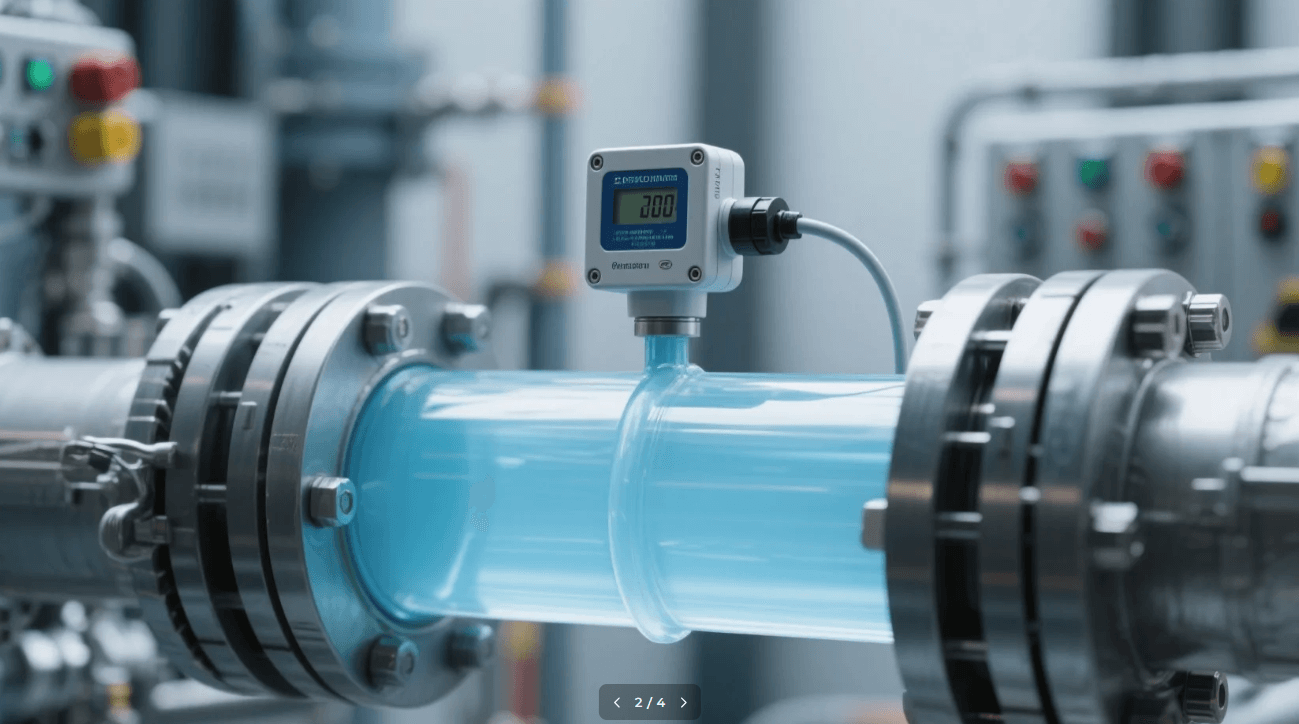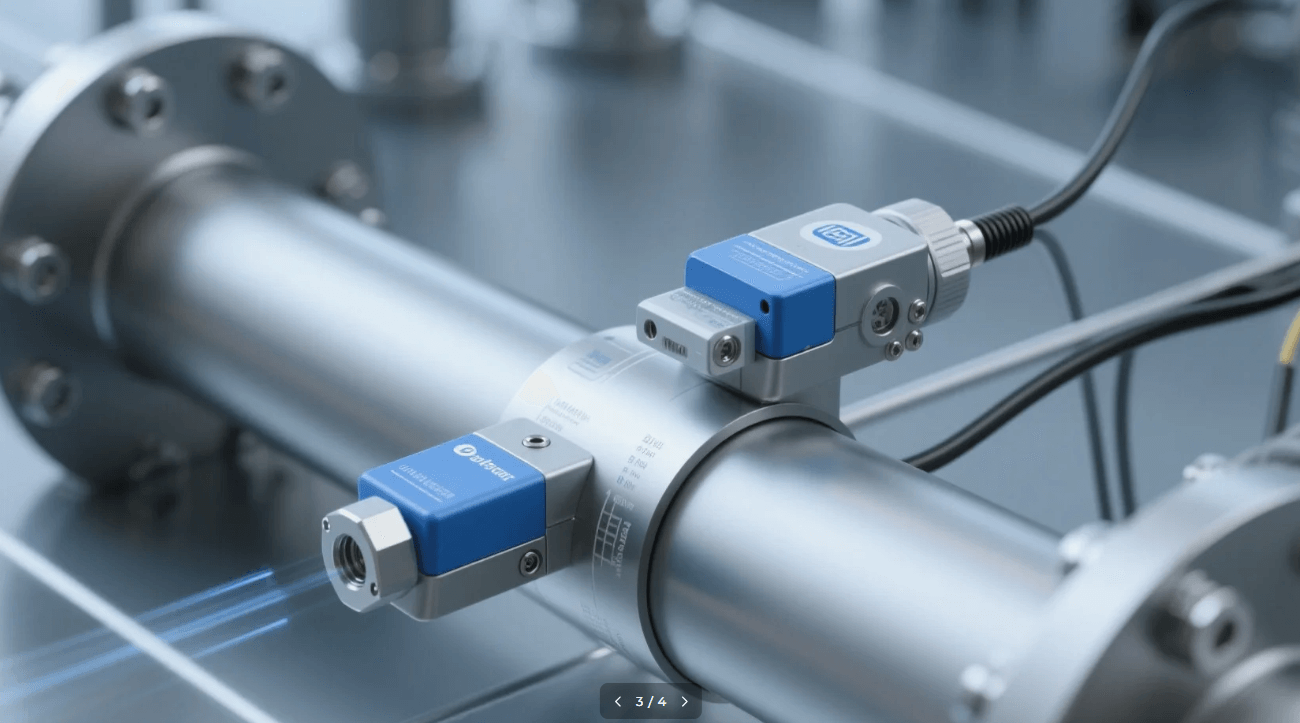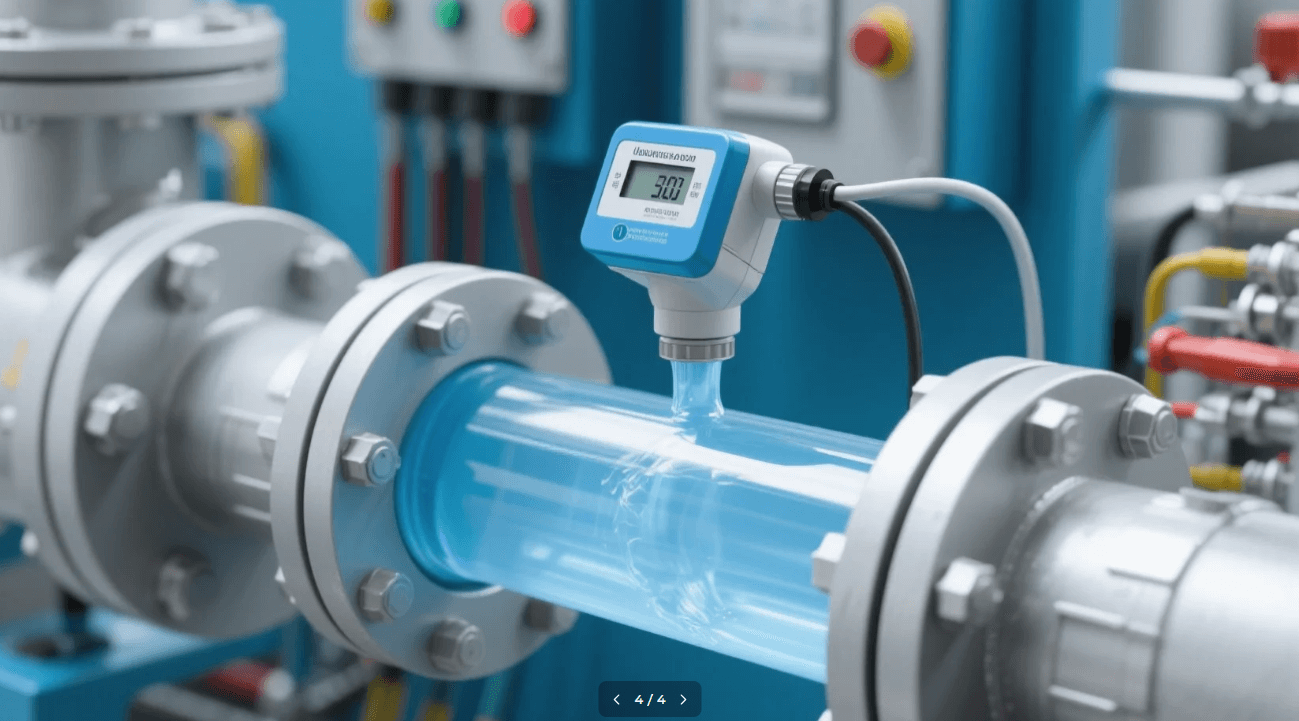- Allen-Bradley
- BANDERA
- Baumer
- Bosch Rexroth
- Danfoss
- Eaton
- Festo
- Honeywell
- IFM
- Leuze
- Logitech
- Mitsubishi
- MTL
- Nidec
- Omron
- PEPPERL FUCHS
- Módulo de diagnóstico avanzado
- Cable de conexión
- Codificador
- Barrera de bus de campo
- Multiplexor HART
- Sensor de inclinación
- Sensor inductivo
- Unidad de evaluación RFID
- Junta de Terminación
- Sensor ultrasónico
- Actuadores de válvulas
- Barrera de seguridad y aislante
- Barrera de protección contra sobretensiones
- Contacto en Phoenix
- PILZ
- PULS
- Rexroth
- ENFERMO
- Siemens
- Schneider
- Turck
- Triconex
- Wago
- Yokogawa
¿Qué es un sensor de caudal ultrasónico?

In the realm of electrical process control and automation, accurate flow measurement is paramount. Ultrasonic flow sensors have emerged as a vital tool, offering non-invasive, precise, and reliable measurements across various industries. By utilizing sound waves to determine fluid velocity, these sensors provide a maintenance-free solution ideal for applications requiring high accuracy and minimal disruption.
Understanding Ultrasonic Flow Sensors

¿Qué es un sensor de caudal ultrasónico?
En ultrasonic flow sensor measures the velocity of a fluid using ultrasonic sound waves. Unlike traditional flow meters, it does not obstruct the flow path, making it suitable for applications where maintaining the integrity of the fluid is critical.
How Does It Work?
Ultrasonic flow sensors operate based on two primary methods:
- Transit-Time Method: Measures the time difference between ultrasonic pulses traveling upstream and downstream. The flow rate is calculated based on this time difference.
- Doppler Method: Utilizes the frequency shift of ultrasonic waves reflected by particles or bubbles within the fluid to determine flow velocity.
These methods enable accurate flow measurements without direct contact with the fluid, preserving its purity and preventing contamination.
Key Features of Ultrasonic Flow Sensors
Non-Invasive Measurement
The non-contact nature of sensores ultrasónicos de caudal eliminates the need for pipe penetration, reducing installation complexity and preserving system integrity.
High Accuracy and Reliability
With no moving parts, these sensors offer high accuracy and long-term reliability, minimizing maintenance requirements and operational downtime.
Versatility Across Fluids
Capable of measuring various fluids, including corrosive and non-conductive liquids, sensores ultrasónicos de caudal are adaptable to diverse industrial applications.
Wide Range of Applications
From water treatment to chemical processing, these sensors are utilized in industries where precise flow measurement is essential for process control and efficiency.
Aplicaciones en control y automatización de procesos eléctricos

Water and Wastewater Management
In water treatment facilities, sensores ultrasónicos de caudal monitor flow rates without contaminating the fluid, ensuring compliance with environmental regulations.
Chemical and Pharmaceutical Industries
These sensors provide accurate measurements in processes involving corrosive or hazardous chemicals, enhancing safety and process control.
Oil and Gas Sector
In the oil and gas industry, sensores ultrasónicos de caudal are employed for pipeline monitoring and custody transfer, offering precise measurements under challenging conditions.
HVAC Systems
Heating, ventilation, and air conditioning systems utilize these sensors for efficient energy management and flow control, contributing to reduced operational costs.
Advantages Over Traditional Flow Measurement Technologies
| Característica | Ultrasonic Flow Sensors | Traditional Flow Meters |
|---|---|---|
| Non-Invasive Installation | Sí | No |
| Maintenance Requirements | Low | High |
| Suitable for Corrosive Fluids | Sí | Limited |
| Precisión | High | Variable |
| Pressure Drop | Ninguno | Possible |
The advantages of sensores ultrasónicos de caudal make them a preferred choice in modern industrial applications, especially where fluid integrity and system efficiency are priorities.
Installation Considerations
Proper installation is crucial for optimal performance. Factors to consider include:
- Pipe Material and Condition: Ensure compatibility with sensor technology.
- Straight Pipe Length: Adequate upstream and downstream straight runs are necessary for accurate measurements.
- Sensor Alignment: Correct positioning and alignment of transducers are essential.
Adhering to manufacturer guidelines during installation will maximize the sensor’s accuracy and longevity.
Future Trends in Ultrasonic Flow Measurement
Advancements in digital signal processing and sensor technology continue to enhance the capabilities of sensores ultrasónicos de caudal. Emerging trends include integration with IoT platforms for real-time monitoring and predictive maintenance, further solidifying their role in smart industrial systems.
Conclusión
Ultrasonic flow sensors represent a significant advancement in flow measurement technology, offering non-invasive, accurate, and reliable solutions for various industries. Their adaptability and low maintenance requirements make them an invaluable component in modern electrical process control and automation systems.
Preguntas más frecuentes (FAQ)
Q1: Can ultrasonic flow sensors measure gas flow?
A1: Yes, certain ultrasonic flow sensors are designed to measure the flow of gases, although applications and accuracy may vary compared to liquid measurements.
Q2: Are these sensors suitable for high-temperature applications?
A2: Some models are engineered to withstand high temperatures; however, it’s essential to consult manufacturer specifications for temperature limits.
Q3: How do I choose between transit-time and Doppler ultrasonic flow sensors?
A3: Transit-time sensors are ideal for clean fluids, while Doppler sensors are better suited for fluids containing particulates or bubbles.
Q4: What maintenance is required for ultrasonic flow sensors?
A4: Generally, they require minimal maintenance due to the absence of moving parts; however, periodic inspections are recommended to ensure optimal performance.
Q5: Can these sensors be used in portable applications?
A5: Yes, portable ultrasonic flow sensors are available and are commonly used for temporary measurements or system diagnostics.
